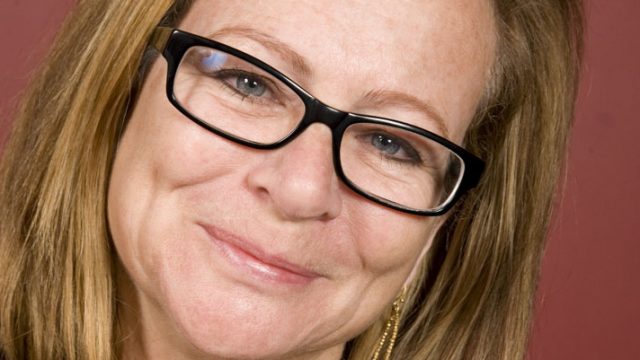I’ve got to level with you—this is someone I don’t have a specific mental image of. And to be honest, I’m not sure how much I like any film she’s ever worked on. Harsh but true. This is because most of her credits are for editing Quentin Tarantino movies, and yeah. But perhaps because of the Tarantino thing, she doesn’t get as much recognition as you might otherwise expect from an editor who was twice nominated for an Oscar. And indeed, I feel as though editing is an underrated specialty.
Sally Menke is, in my opinion, a pretty direct refutation of the auteur theory. That’s an important place in film to hold. Tarantino himself called her his collaborator, and the “Hi, Sally” reels are available on YouTube for anyone who cares to go looking. (They’re amusing enough.) Tarantino is one of the examples people bring up when they’re discussing auteurs, and goodness knows his films have a very distinct feel to them. I don’t think you can really confuse a Tarantino film with one directed and written by anyone else. And yet he believed firmly that Sally was an integral part of making those movies.
I have to confess that I have not seen a non-Menke Tarantino movie; the most recent movie of his that I’ve seen is the last one she edited before dying. However, friends who like his movies more than I say you can actually tell the difference between the editing in the movies she did and the movies after, and perhaps this is the real secret of the auteur—and one that puts Spielberg in the category, where few people would put him. An auteur isn’t necessarily someone who controls every single detail of the film. An auteur is someone who chooses people to work with based on the results they want, which often means selecting the same people for the same jobs over and over again, because they know they’ll get the work they want out of that person.
I think a lot of people have this view of editing a film that it’s all about cutting the unnecessary dead wood out of a movie, cutting scenes and lines and things so that the film flows better and doesn’t have as much unnecessary stuff to it. The proliferation of deleted scenes on DVDs probably encourages that view. But there’s more to the job than that, unless you’re making an Ed Wood movie—which probably barely had any editing anyway, because he only did single takes and probably had no deleted scenes. All his editor had to do was put the scenes in the right order. But Menke would have been choosing among takes, connecting together shots, selecting—doubtless in collaboration with Tarantino himself, but still—which of the filmed angles to use in which moment.
There is also, I must admit, something satisfying to the fact that this particular Tarantino collaborator was a woman. While both Django Unchained and The Hateful Eight were edited by a man (Fred Raskin, if you’re curious), Manke even edited Reservoir Dogs; she goes all the way back in Tarantino. Given how much of a Guy Director he is, there’s a little satisfaction to the idea that the majority of his films were edited by a woman. They were shaped by a woman in ways that most guys will never notice.
Finally, a note on Menke’s death. She went hiking in Griffith Park on the twenty-seventh of September, 2010. The temperature in Los Angeles that day reached 113 degrees in downtown. Her death has indeed been determined to have been heat-related. This is not weather to go hiking in, and to be perfectly honest, I think it’s clear that the fact it was that hot in the end of September is an example of climate change, since you’d only get a few days of that in July or August when I was a kid, and now, it’s not considered unusual to have days that hot in October. So. Let the weather be your guide, stay hydrated, and always let someone know when you expect to be home.
Help keep my work going; consider supporting my Patreon!

